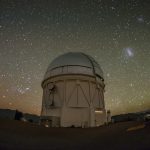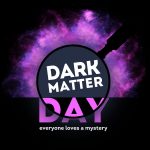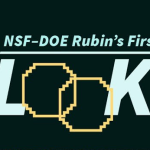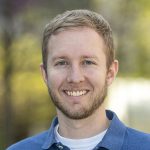Fermilab’s cosmic research program explores the fundamental nature of matter, energy, space, and time, as revealed in the unique natural laboratory of the cosmos.
Surveys of galaxies and cosmic background radiation use precise measurements of cosmic structure to learn about fundamental physics of cosmic acceleration, new forms of gravitating matter, and properties of cosmic neutrinos. A coordinated campaign of experiments seek to directly detect and study the properties of dark matter particles in the laboratory. Development of new technology, both ultra-sensitive detectors and advanced computational algorithms, will enable the next generation of discovery.
The Fermilab Cosmic Physics Center (CPC) hosts Fermilab’s cosmic research program and fosters interactions between the lab and the larger the cosmic physics community. We invite you to join the adventure, a high-energy, cosmic journey: learn about who we are, the science we’re focused on, and how you can be a part of it.
Highlights
The Dark Energy Survey (DES) Collaboration announced the latest results combined weak lensing and galaxy clustering and incorporated four dark energy probes from a single experiment for the first time. This is the culmination of more than 20 years of work by the DES, which was proposed in 2005. Fermilab led the construction of the… More »
The Fermilab CPC is partnering with Adler Planetarium to host its 7th annual Dark Matter Day event! This year Dark Matter Day will be held at Adler Planetarium on Wednesday, November 2nd from 11AM-3PM. More details can be found on Adler’s event page. Videos from some past Dark Matter Day events can be found here:… More »
Fermilab employees, users and affiliates are invited to take part in an exciting moment for astronomy: the First Look livestream from the Vera C. Rubin Observatory — June 23, 2025 at 10 a.m. US CDT. Watch from your own device or join an in-person watch party in the WH8XO Hornet’s Nest (capacity: 60 people). This is a unique opportunity… More »
Fermilab CPC Scientist Alex Drlica-Wagner was selected as a 2024 Fellow of the American Physical Society (APS) for “For critical contributions to observational cosmology in DES, DELVE, and LSST, including groundbreaking work in dark matter science with these surveys and leading the implementation of ultra-low noise skipper-CCD in astronomical instrumentation, and for mentoring the next… More »













